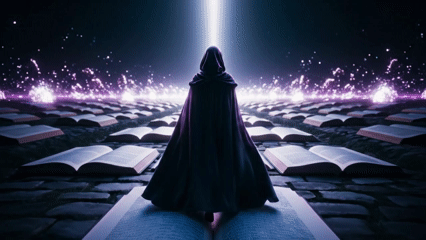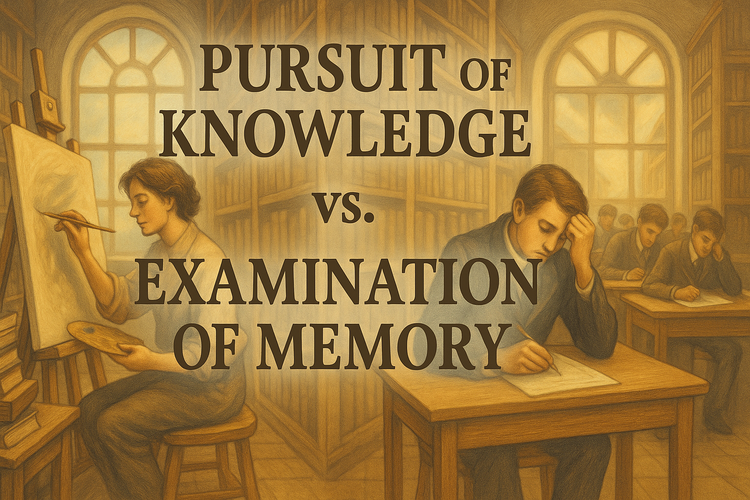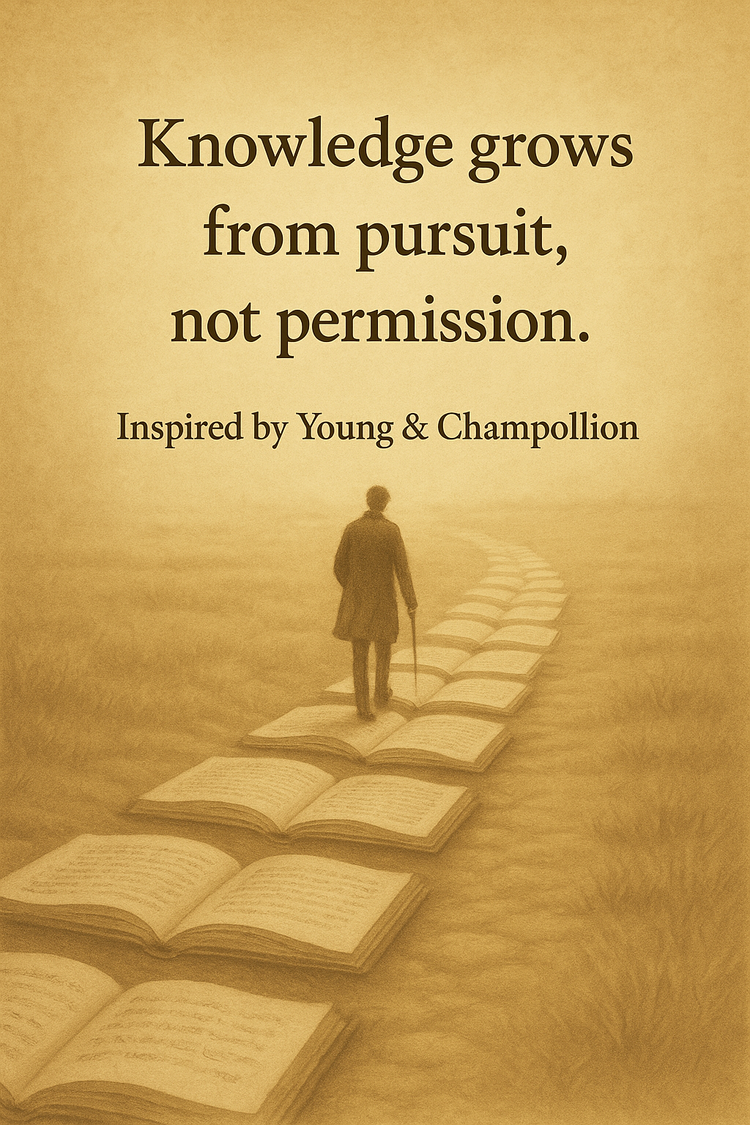The Pursuit of Knowledge
🤝 Support & Links
The Pursuit of Knowledge — and the Exam of Memory
By Darren Palmer | One Humanity Project

Knowledge as journey, not judgment — the pursuit of truth before the exam of memory.
Opening Reflection — The Modern Classroom
We still assess learning as if recall were intelligence.
Centuries later, the pattern endures. We test to rank, not to reveal. We reward recall over reasoning, uniformity over imagination.
The internet now holds more memory than any mind could, yet we continue to treat repetition as proof of understanding. The exam survives because it’s easy to measure — not because it measures what matters.
A grade can’t show curiosity. A mark can’t show compassion. And a score can’t show what a person might yet become.
Modern education mistakes efficiency for fairness. Standardisation promises equality, but it flattens difference. True equality begins when learning adapts to the learner — when creativity, empathy, and critical thought carry as much weight as memorised facts.
To move forward, we must unlearn the habit of testing sameness. We must return to the essence of knowledge itself: the courage to question, to connect, to create.
When Knowledge Became a Credential
The world’s first accredited exam wasn’t written. It was a debate.
In 1231 CE, the University of Paris gained papal authority to examine students and grant degrees. A new idea entered history — that learning could be certified, ranked, and formalised under institutional power.
Before that moment, knowledge was pursuit — a curiosity shared and tested through life itself. After it, knowledge became something you could prove. This was the dawn of accreditation — the moment curiosity became a credential.
Ancient Roots — Learning Before the Exam
Before universities and parchment degrees, learning was already formalised in temples, academies, and scholarly cities across the world. Each culture defined education through its own philosophy — spiritual duty, civic virtue, or personal enlightenment.
Across continents, learning began as dialogue. Knowledge was validated through understanding, not approval.
The Birth of Academic Accreditation
By the 12th century, cathedral schools in Europe evolved into universities: Bologna (1088) for law, Paris (~1150) for theology, Oxford (1096) and Cambridge (1209) soon after.
In 1231, Pope Gregory IX issued Parens scientiarum, granting Paris the right to examine and certify scholars — the first widely recognised academic accreditation. Students faced the determinatio, an oral disputation judged by masters; success earned the licentia docendi — license to teach.
Learning became hierarchical. Curiosity now required permission. Knowledge was no longer an act; it was an approval.
Memory, Knowledge, and Wisdom
- Memory is storage — recalling facts and formulas.
- Knowledge is integration — seeing relationships and patterns.
- Wisdom is application — knowing when and how to use what you know.
Exams measure memory. Wisdom resists measurement. And once learning could be scored, it could be denied. Exams created gates — and gates decide who gets through.

The Self-Built Curriculum
Even within systems of approval, the most meaningful breakthroughs came from those who refused to wait for permission.
Thomas Young (1773–1829) and Jean-François Champollion (1790–1832) — pivotal in unlocking the Rosetta Stone — were both self-directed polymaths. Young ranged across medicine, optics, and languages. Champollion assembled mentors, texts, and a comparative method until the code broke.
They didn’t pass exams; they transcended them. They proved that real learning begins with curiosity, not compliance.
“Knowledge grows from pursuit, not permission.”
Closing Insight — Equality Without Distinction
The pursuit of knowledge is active, creative, and human. The examination of memory is procedural and confined. One liberates; the other sorts.
If equality means anything, it must begin in how we learn. When we stop grading difference and start valuing it, learning returns to its purpose — to understand, not to outperform.
Equality Without Distinction begins there: in the courage to value understanding over approval, and curiosity over conformity.

✨ Shareable Quotes
- “We still assess learning as if recall were intelligence.”
- “Exams measure memory; wisdom defies measurement.”
- “Knowledge grows from pursuit, not permission.”

